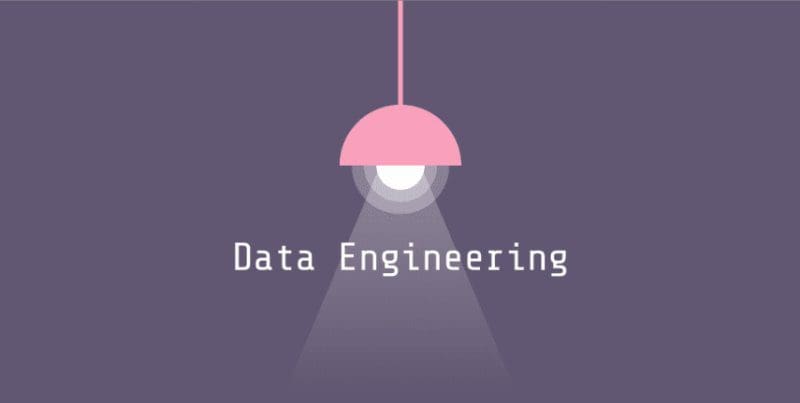 Skills to Build for Data Engineering
Skills to Build for Data Engineering
This article jumps into the latest skill set observations in the Data Engineering Job Market which could definitely add a boost to your existing career or assist you in starting off your Data Engineering journey.
By Mohammed M Jubapu, Solutions Architect & Data Engineer

Data Engineering is one of the most sought out job in the market these days. Data is everywhere and is considered to be the oil of the new age. Companies generate a large amount of data from different sources and the task of a Data Engineer is to organize the collection of data information, it’s processing and storage. However, to become a Data Engineer, you need to have some excellent skills like Databases, Big data, ETL & Data Warehousing, Cloud computing as well programming languages. But the question arises, do you want to have all these skills or do you experience using all the tools? This is the biggest dilemma specially in technologies where there is buffet of tools available to get things done.
Well, to simplify this let's grab a cuppa and dive straight into the latest skill set observations in the Data Engineering Job Market which could definitely add a boost to your existing career or assist you in starting off your Data Engineering journey.
1- Proficiency in one programming language
Yes, programming language is a required skill for Data Engineering. Majority of the job profiles requires proficiency in at least one programming language. These languages are required to code the ETL or data pipeline framework. Common programming languages are the core programming skills needed to grasp data engineering and pipelines generally. Among other things, Java and Scala are used to write MapReduce jobs on Hadoop; Python is a popular pick for data analysis and pipelines, and Ruby is also a popular application glue across the board.
2- Python is the most listed skill
Python! Python! Python! Yes, around 70% of the job profiles has Python as the required skill followed by SQL, Java, Scala and other programming skills like R, .Net, Perl, Shell Scripting etc.
3- Apache Spark shines at the top for the Data Processing layer
Data processing is the collecting and manipulation of data into the usable and desired form. Apache Spark topped the list for the data processing layer followed by AWS Lambda, Elasticsearch, MapReduce, Oozie, Pig, AWS EMR etc. Apache Spark is a powerful open-source framework that provides interactive processing, real-time stream processing, batch processing, and in-memory processing at very fast speeds, standard interface, and ease of use.
4- Rest APIs are frequently used for Data Collection
For any data which require analysis or processing, first it needs to be collected or ingested into the data pipeline. Rest APIs are the commonly utilized tool for this purpose followed by Sqoop, Nifi, Azure Data Factory, Flume, Hue etc.
5- Data Buffering is common with Apache Kafka
Data Buffering is a crucial piece in the Data Engineering framework where the data needs to be temporarily stored while it is being moved from one place to another to cater high volume. Apache Kafka is a commonly used distributed data store optimized for ingesting and processing streaming data in real-time. Streaming data is data that is continuously generated by thousands of data sources, which typically send the data records in simultaneously. A streaming platform needs to handle this constant influx of data, and process the data sequentially and incrementally. Other tools in this category are Kinesis, Redis Cache, GCP Pub/Sub etc.
6- Store your data – SQL or NoSQL
Data needs to be stored for processing, analysis or visualization to generate valuable insights. Data store can be in the form of Data Warehouses, Hadoop, Databases (both RDBMS and NoSQL), Data Marts. SQL skills are mostly sought followed by Hive, AWS Redshift, MongoDB, AWS S3, Cassandra, GCP BigQuery etc.
7- Data Visualization with Tableau or PowerBI
Data visualization is the representation of data or information in a graph, chart, or other visual format. It communicates relationships of the data with images. Tableau and PowerBI are ahead of the race followed by SAP Business Objects, Qlik, SPSS, QuickSight, MicroStrategy etc.
8- Data Engineering Cloud Platforms
There are different cloud or on-premise based platforms which can be leveraged to work on different Data Engineering set of tools. The typical ones listed are Hadoop, Google Cloud Platform, AWS, Azure and Apprenda.
Well, one cannot be a master or experienced with all the skills & tools and it is definitely not mandatory to have all these skills. But typically required to have a strong hold on at least one of them in each data pipeline framework category like GCP for Cloud Platform, Python for Development, Apache Spark for Processing, Rest APIs for Data Collection, Apache Kafka for Data Buffering, Hive for Data Storage and PowerBI for Data Visualization.
Learn, get skilled and boost your career! Good Luck & Happy Data Engineering!
Bio: Mohammed M Jubapu is a Solutions Architect & Data Engineer at Cleveland Clinic Abu Dhabi, located in Abu Dhabi.
Original. Reposted with permission.
Related:
- Five Interesting Data Engineering Projects
- Why and How to Use Dask with Big Data
- Observability for Data Engineering

 Skills to Build for Data Engineering
Skills to Build for Data Engineering